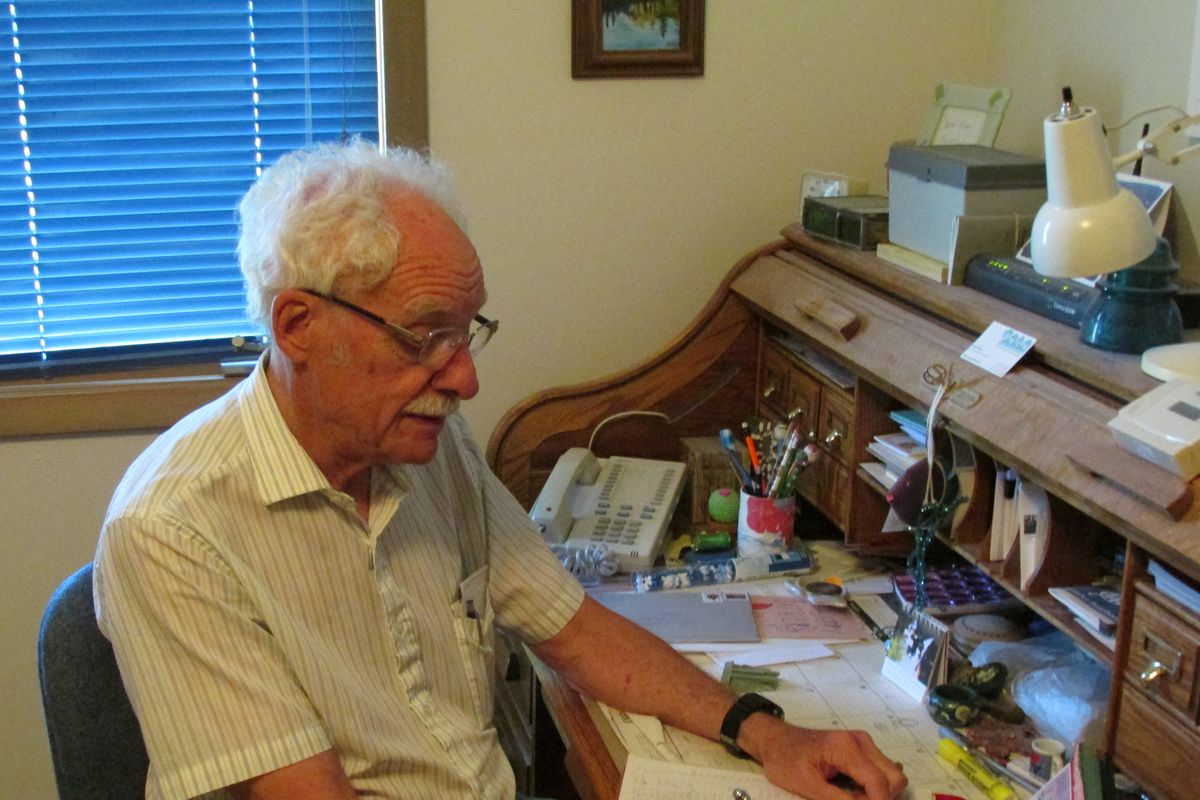Locally Writ: Larry Godwin’s ‘Transcending Depression’ reflects his personal struggles

Author Larry Godwin’s second memoir, “Transcending Depression: A Quest Without a Compass,” is a follow-up to his first, “Surviving Our Parents’ Mistakes.” Although Godwin now lives in Missoula, he has fond memories of visiting family in Spokane over the years.
After earning a doctorate in business administration and accounting from the University of Colorado, Godwin taught at Oregon State and the University of Montana until retiring in 1996. The same year, he began writing his first memoir.
“It was quite a shift from just thinking with that side of the brain, moving from thinking about logic and rules to thinking about more unstructured writing,” he said. “It’s something that appeals to me a lot more now than the debit and credit rules that I was bound by when I was teaching accounting.”
His most recent memoir, “Transcending Depression,” is a compilation of reflections on his personal struggles with depression drawn from decades of journaling.
“This is not a ‘how-to’ self-help book; it’s not a model that I think the depressed should follow. It’s not a toolbox … it’s just grounded in my own experience,” Godwin said.
“My goal was to clarify my own thinking about mental illness and depression from my own standpoint. Then I thought that some of the things I learned from this analysis might benefit other people, that as readers look over my book, they might come up with some ideas of their own that I haven’t. That’s my prime motivation for writing the book – to reach other people and give them hope.”
Writing has always been a part of Godwin’s life in one form or another. He remembers writing short stories about relationship difficulties and sonnets for his high school girlfriend before migrating into the realm of nonfiction in his early 20s.
He has taken up fiction writing again more recently, but journaling has been a more consistent, therapeutic outlet.
“It’s helped me clarify what’s going on in my life – when I struggled, it helped me find a path forward, reflecting on what I’d written before and adding later thoughts,” he said. “When something is looming that I’m troubled about, I just start journaling.”
After retiring from his professorship, Godwin started a business editing novels, short stories and poetry. It wasn’t especially profitable, but he didn’t mind. The joy of helping other writers hone their craft was more than enough incentive.
“It was really a pleasure; I felt like I was making a difference in the world, that this was the path that I was meant to lead,” he said.
Helping others progress had become a major motivator, he explained.
Before beginning his first memoir, Godwin wrote his own “depression survival guide,” a list of 36 suggestions he had found helpful or inspiring over the course of his 49-year journey through depression.
He sent the guide to more than 200 chapters of the National Association for Mental Illness and received encouraging feedback. The guide, which he stresses is by no means exhaustive, is appended to “Transcending Depression.”
“People thought it was helpful, so I thought I should keep pursuing this line,” he said. “Try to help other people further.”
To aspiring writers, Godwin offered the following advice:
“When inspiration comes, don’t ignore it. Pay attention to those motivational sparks. Follow through with them.
“If a writer comes up with an idea and thinks, ‘Gee this is really important, but I don’t know if I’m good enough to write about it,’ just push those objections aside and plunge into it.”
“Transcending Depression: A Quest Without a Compass” is available on Amazon.